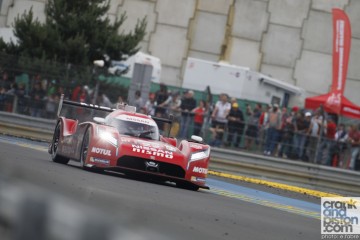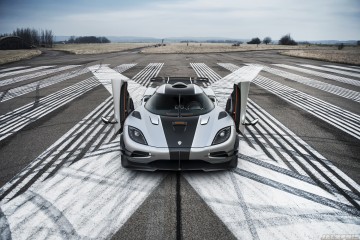News that the UAE would play a key role in this year’s FIA Institute Young Driver Excellence Academy was celebrated by the region’s motorsport community. ‘At last’, the cry went up, ‘young Emiratis will get the chance to prove their worth on-track’. But at the same time, there are calls for more regional action to provide racing between karting and high-level international competition.
[Not a valid template]As the name suggests, the Institute Young Driver Excellence Academy offers young up and comers – aged between 17-23 and with no more than four seasons of circuit racing under their belts – the chance to develop their racing skills, and has been doing so since its inaugural run in 2011. Five regional selection events will take place in Europe, Sub-Saharan Africa, the Americas, Asia-Pacific, and the Middle East and Mediterranean, with the MENA selection process taking place in the UAE on 22-25 September.
Up to 26 drivers are expected to arrive en-masse for the Middle East round, each of which will be tested on their mental acuity in race situations as well as their development speed and their already above-average physical fitness. Each competitor will also have to prove their goal of competing internationally at the top level, confirm a regular racing program for the upcoming season, and prove a capable ability to source funding for competition.
If that’s not imposing enough, let’s not forget those three key letters: F, I, A. Training from the Fédéral Internationale de l’Automobile – governing body for Formula 1, the World Endurance Championship, the World Touring Car Championship and the World Rally Championship – plus knowledge hewn from karting and national level circuit racing give candidates a huge boost on their way up the career ladder.
For UAE athletes however, there is a problem, namely the ailing condition in which regional motorsport finds itself. The NGK Racing Series – formerly UAE Touring Cars – has seen grid numbers fall significantly in just a few years, while the UAE GT Championship has dropped off the radar altogether. Moreover, while young drivers in Europe spend years gaining experience in one of many junior categories before taking their next step, their UAE counterparts have few options between karting and top drawer national racing series. With limited experience and no money, many Emirati racers simply cannot make the grade. It’s a situation that seemingly doesn’t have an easy fix.
“It’s very hard to pin the decline on one particular reason”, explains Barry Hope, CEO of GulfSport Racing and organiser behind one of the region’s few junior categories, Formula Gulf 1000. “It’s a combination of finance, confidence and a lack of innovation and incentive. There’s no TV and no sponsorship, so there’s no support. Most of the big money in the region has come into the high end: Abu Dhabi had a budget for Formula 1 but everything else has to run on its own merits. Plus there’s no leadership. It’s a bit like project management: if you don’t have objectives and goals, you’re not going to get anywhere.
Here then the FIA Institute Young Driver Excellence Academy offers Middle East youngsters an opportunity to take the next step, albeit against stiff competition: only 18 drivers globally are accepted into the academy.
Mohamed Al Mutawaa, now a UAE Red Bull athlete, was one of those 18 when he became the first Arab athlete inaugurated into the programme in 2011. As well as driver coaching from former F1 driver and two-time 24 Hours of Le Mans winner Alex Wurz and Robert Reid (co-driver to 2001 WRC Champion Richard Burns), the Emirati also learnt that the act of career progression involves much more than driving quickly.
“It wasn’t just about driving specifically,” he explains, “At the selection event, it was mostly about physical training and the mental activities that help you better yourself. We were basically taught how to do five things at the same time, which is something I didn’t really expect but was an interesting experiment. The physical part of it was really helpful. When you’re competing you’re expected to have high amounts of fitness.”



